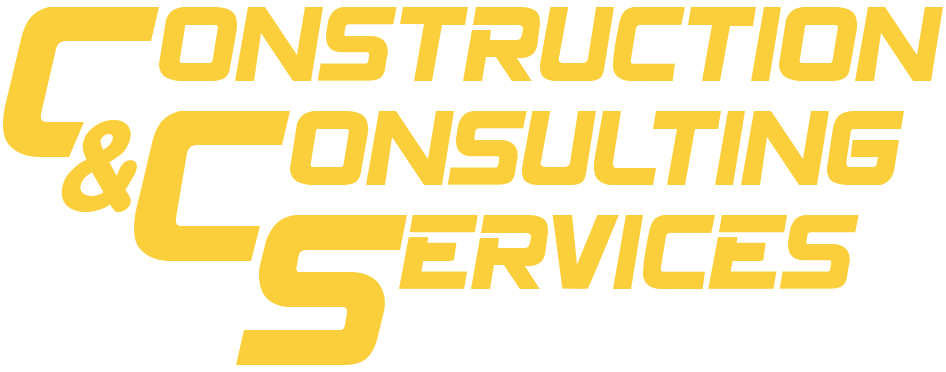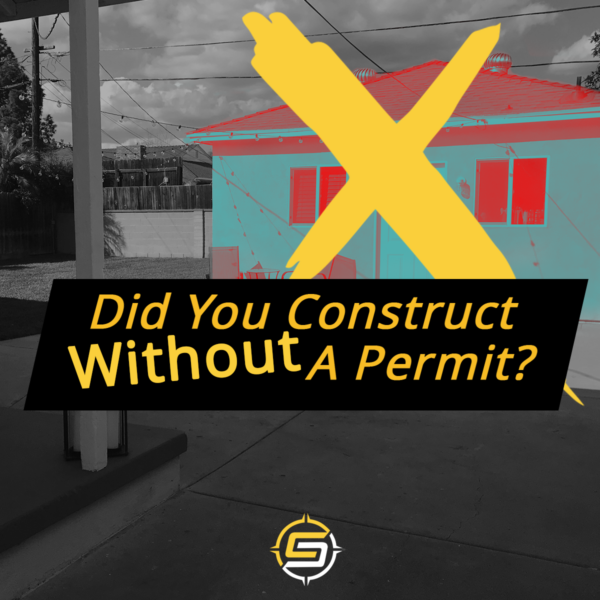
However, undertaking conversions or additions without the proper paperwork can result in fines, penalties, and potentially decrease the value of the house. Moreover, it can add significant complications to both the selling and buying processes.
Fortunately, tearing down the entire unpermitted structure isn’t always necessary. You can opt to obtain a retroactive building permit instead. However, it’s essential to note that this process can be lengthy, involving extensive paperwork, waiting for approvals, modifications to structural plans, and substantial costs.
If you are a buyer worried about a property where the seller did not disclose unpermitted work or you have constructed without a permit you have reached to the right place.
Here’s a comprehensive guide to navigating the buying or selling of a house with unpermitted construction.
What If I Buy / Sell a House With Unpermitted Work?
It can be difficult to sell a house with unpermitted work such as ADU / addition / garage conversion, is but not impossible. You have two choices:
1. Sell it As-Is for Cash
Many buyers walk away once they learn of unpermitted work in a house because of safety concerns and the time and costs involved in the process of getting it legalized.
If you are in a rush and do not want to deal with costly repairs and paperwork, your best bet is to sell your house as is to a real estate investor on a discount to compensate for the costs of work. Real estate investors buy the properties with unpermitted work, get it ractified before reselling them for a profit.
2. Obtaining a Retroactive Permit: A Path to Legalizing Unpermitted Work
Another avenue to consider is legalizing your unpermitted modifications, enabling you to sell your property at its optimum market value. Here are two approaches you can take:
- Restore to Original Condition: In certain cases, you may opt to remove the unpermitted alterations and restore your home to its original state. While this approach can be a significant undertaking, it may be necessary for compliance and to streamline the legalization process.
- Obtain a Retroactive Permit: Alternatively, you can pursue a retroactive building permit for the unpermitted work. This involves engaging with the local authorities, submitting necessary documentation, and potentially making modifications to comply with building codes. While this route requires effort and investment, it offers a viable path to legitimizing your property and maximizing its market appeal.
By exploring these options, you can navigate the process of legalizing unpermitted work, ensuring a smoother selling experience and unlocking your property’s full potential in the market.
Additionally you can hire us, CCS Inc, we helped homeowners and buyer in Los Angeles for over 10 years. We are offering Pre-Purchase and Escrow Inspection for buyers and Retroactive Permit for homeowners.
How to Obtain a Retroactive Permit for Your Unpermitted Construction?
To legalize your undocumented work, you’ll need to apply for inspection and secure permit approval from the building department. The building and safety department will conduct thorough inspections, which may involve removing walls, ceilings, or floors to ensure the work meets regulations. They may also require remedial action to rectify any violations.
Here’s a breakdown of the steps involved in obtaining a retroactive building permit:
- Meet with the Planning Department: Begin by consulting with the Planning Department to understand the requirements and regulations applicable to your situation.
- Hire an Architect or Designer to Draw Plans: Engage the services of a qualified architect or designer to draft plans that meet building codes and regulations.
- Submit Documents for Design Review: Prepare and submit all necessary documents for review by the relevant authorities.
- Schedule Initial Inspection: Coordinate with the building department to schedule an initial inspection of the property and the unpermitted work.
- Remedial Work & Final Inspection: Address any issues identified during the inspection, make necessary remedial changes, and schedule a final inspection to obtain the retroactive permit.
The costs and duration of the process can vary based on the scope and complexity of the construction work undertaken.
For a full service to handle the entire process of obtaining a retroactive permit for your unpermitted construction including any type of structure or unpermitted remodeling visit:
What Happens if You Do Not Disclose Unpermitted Construction to the Buyer?
Once you know that unpermitted work was done on your house, and you choose to sell it as-is, you are legally obligated to disclose it to the potential buyers to avoid any legal repercussions.
Even if the work was done by a prior owner, once you closed the deal on a property, it is your responsibility to disclose it to the buyer.
If you sell it without disclosing the violations and legal action is taken against you by the eventual buyer, you will be held liable for it and not the previous owner.
Additionally, if the buyer suffers a personal injury or loss of property as a result of the unpermitted work, you will be held responsible for the damages.
Do Appraisers Report Unpermitted Construction to the Building Department?
An appraisal is conducted to determine the value of your house after you accept an offer. The appraiser evaluates the square footage and the overall condition of your home to make sure that everything was done in accordance with the law.
Although the appraisers can verify if building permits were pulled before construction, they typically do not do so. However, if they notice substantial upgrades in your house, they may ask if it was permitted. If they find that there is undocumented work, they will let the lender know about that.
It is pertinent to mention that appraisers are not building code inspectors, and it is not their responsibility to report unpermitted work to the building department. Their concern is with any undocumented work and determine if it affects the final appraisal.
Should You Walk Away from a House with Unpermitted Construction?
Though there are risks to accepting a house with unpermitted construction, you can sometimes secure a great deal.
If you are interested in buying such a house, you have two options;
Ask the Seller to Fix the Problem
You may ask the seller to disclose the unpermitted construction to the city and obtain a permit retroactively. It, however, is unlikely that the seller will go through an expensive and comprehensive remediation process.
Ratify Unpermitted Construction
You can accept the house as-is and ask for a steep discount to take on the additional risk and the liability to obtain a retroactive permit for the unpermitted construction.
Reach out to us today at (323) 405-8909, and we will help you figure out the best solution for your situation.
What Happens if You Buy a House with Unpermitted Conversion / Addition?
Though you can purchase a house with unpermitted work for a significant discount, there are many risks associated with it that you must know before you make a final offer.
Here are some potential pitfalls of purchasing a house with undocumented construction;
You May Face Fines and Penalties
The building department has the authority to issue penalties and impose fines if they discover unpermitted work on your house. However, the authorities may be lenient with the deadlines to get your unpermitted work legalized and not charge penalties if you had no knowledge of the issue when the property was purchased and you voluntarily seek compliance.
The House Might Not Be Safe
Permits certify that work to be done meets the safety and reliability standards. The work that is done in violation of codes may lead to structural failure, fire hazards, and electrical issues that can result in personal injuries or property damage. A good home inspection is essential to ensure that the work done without permits is not detrimental to the structure of the property and dangerous for the occupants.
The House Can be Hard to Mortgage
It can be extremely difficult to get a mortgage loan on a house with unpermitted additions and conversions. If you do not disclose such work to the lender, but it is discovered later, they may ask for immediate loan repayment.
Undocumented Work Can Jeopardize Homeowners Insurance
Getting a house with unpermitted work insured is almost impossible. Insurance providers would not cover the undocumented work and any damages that occur to the property as a result or could drop the coverage of the house altogether. READ MORE
Unpermitted Construction Can Increase Property Taxes
A construction that adds livable square footage can increase the assessed value of your house, which in turn could increase your property taxes when legalized.
Final Words
Let Us Formalize Your Unpermitted Construction
For years, we at CCS Inc have been helping the homeowners legalize their unpermitted constructions.
No matter what the nature and size of the unpermitted work you are looking to get retroactively permitted, we can work with you at each step of the way to bring it into compliance in the most economical way possible.
Reach out to us today at (323) 405-8909, and we will help you figure out the best solution for your situation.




